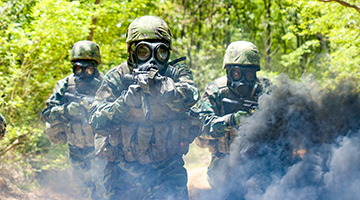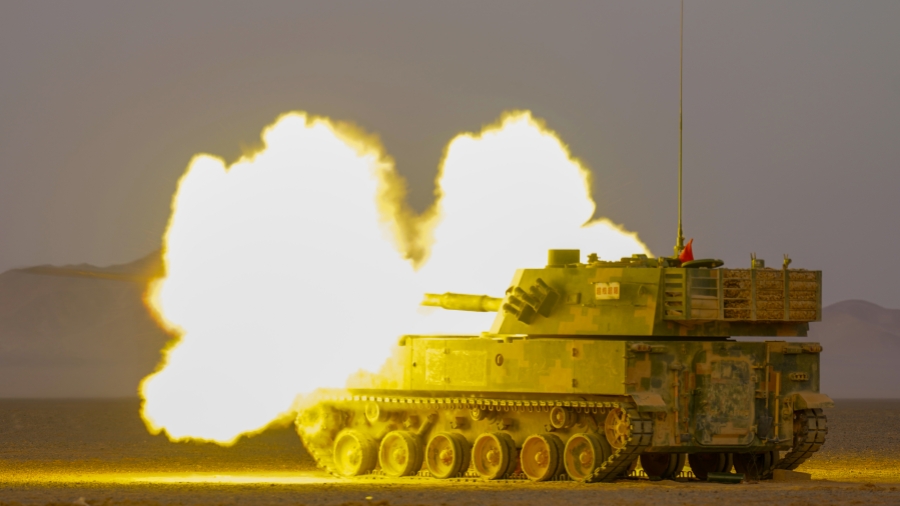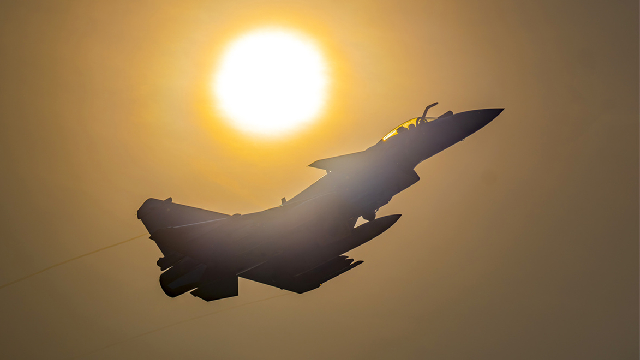By Dong Yifan
On October 7, the US and NATO announced to freeze their participation in the Treaty on Conventional Armed Forces in Europe (CFE), further shaking the continent's conventional arms control system.
The CFE was signed between NATO and Warsaw Treaty Organization to reduce both sides' conventional force in Europe in 1990, which is right before the end of the Cold War, when the Soviet Union held a hope to ease the military confrontation atmosphere within Europe. Afterward, as the Warsaw Pact and Soviet Union fell apart, which greatly changed the geopolitical landscape in Europe, the US-led west continuously extended their strategic interests to encroach on Russia's legitimate security concerns. Through pushing NATO's eastward expansion, the US-led west has been strengthening strategic squeeze and deterrence against Russia, continuously building up their advantages over Russia in terms of conventional force.
In 1999, the Organization for Security and Cooperation in Europe (OSCE) adopted the Agreement on Adaptation of the Treaty on Conventional Armed Forces in Europe to adapt the existing treaty to the changes in the European landscape after the collapse of the Soviet Union, but only Russia and three former Soviet Union republics, the Belarus, Kazakhstan and Ukraine, signed the treaty, which revealed that the West was not genuinely sincere about building an equal and credible security system with Russia.
In the wake of the new round of eastward expansion of NATO in the early 2000s, the effectiveness and reliability of the treaty were further undermined by some Western approaches including NATO's deployment of anti-missile systems in Poland and radar facilities in Czech, and the US establishment of new military bases in Bulgaria and Romania. Russian Deputy Foreign Minister Sergei Ryabkov straightly proclaimed that the US and its allies should bear full responsibility for the suspension of the treaty.
In fact, apart from actions at the conventional weapons level, the US and NATO also consistently violate the rules of the Intermediate-Range Nuclear Forces Treaty and the New Strategic Arms Reduction Treaty, and arrogantly and hostilely respond to Russia's position of seeking its own legitimate security concerns, resulting in the US-Russia arms control issue constantly progressing towards an increasingly dangerous direction.
Compared with the destabilization of the nuclear arms control system, the disintegration of the European conventional military force control framework could somewhat present a higher level of danger to regional security. The breakdown of the conventional arms control framework means that there will be no ceiling for arms race on the continent, and the military confrontation between the US-led West and Russia, as well as Europe's security dilemma, will face a spiral upgrading. In the meantime, in view that the West regards the aid to Ukraine and anti-Russia, as well as the "desire to see Russia fail", as the so-called political correctness, NATO and some European countries will be trapped in the false cognition that "military deployment is growing in proportion to its sense of security", and also push their distorted security perceptions further away from the normal path of problem-solving.
However, Europe is undoubtedly most adversely impacted by the fracturing of the security order. At present, led by some transatlantic politicians, the EU has assertively achieved the so-called unity around security and defense policies, approaching the goal of strengthening self-defense and weakening Russia by arming Ukraine. Nevertheless, European countries also understand that the collapse of the security architecture including the collapse of the conventional forces control framework denotes that they will be unable to escape the spiral of arms race escalation and binding with the NATO military alliance and the fact that they have to pay for it at the cost of the domestic public sense of security and economic development prospects.
The reason why Europe has risen from the ashes and unleashed unrestricted potential for prosperity based on a single market since the end of WWII is that a 70-year-long postwar peaceful environment allows it to concentrate the resources on economic construction and public welfare. If the European security order collapses, it means that the foundation of the continuous progress of European integration – peace and development – will not be restored easily. As Russian Deputy Foreign Minister Sergei Ryabkov said, "It will be possible to talk about a new treaty on conventional arms control only after the current stormy period of European history is over and the West abandons its hostile anti-Russian policy."
It should be noted that some visionary people in Europe have been aware that a peaceful and stable environment must be built on a security architecture of mutual trust. Only by retaining mutual respect for core interests and security concerns of each other can European security be guaranteed. The hostility and confrontation toward Russia from the West will only deviate from the right solution.
(The author is a scholar of the Institute of European Studies, China Institutes of Contemporary International Relations)
Editor's note: Originally published on huanqiu.com, this article is translated from Chinese into English and edited by the China Military Online. The information and opinions in this article do not necessarily reflect the views of eng.chinamil.com.cn.









